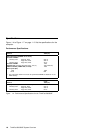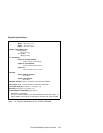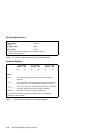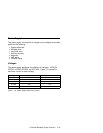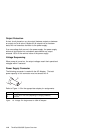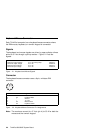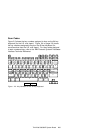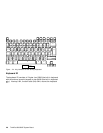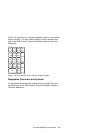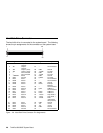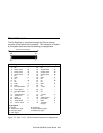
Description
This section describes the microprocessor, connectors, memory
subsystems, and miscellaneous system functions and ports for the
ThinkPad computers. You can find additional information about
these topics in
IBM Personal System/2 Hardware Interface Technical
Reference–AT-Bus Subsystems
.
Microprocessor
The ThinkPad 560 uses the Intel Pentium 100/120/133MHz
microprocessor. This microprocessor contains a full 32-bit RISC
integer core, a built-in math coprocessor, and a 16KB internal cache
memory.
The ThinkPad 560E uses the Intel Pentium 150/166MHz
microprocessor with the MMX technology. This microprocessor
contains a full 32-bit RISC integer core, a built-in math coprocessor,
and a 32KB on-chip cache memory.
Cache Memory Operation
The cache memory in the Intel Pentium microprocessor enables the
microprocessor to read instructions and data much faster than if the
microprocessor had to access system memory. When an instruction
is first used or data is first read or written, it is transferred to the
cache memory from main memory. This enables future accesses to
the instructions or data to occur much faster.
The cache is disabled and empty when the microprocessor comes
out of the reset state. The cache is tested and enabled during the
power-on self-test (POST).
The cache memory in the Intel Pentium microprocessor is loaded
from system memory in 32-byte increments, each referred to as a
cache line
. A cache line is aligned on a paragraph boundary. A
reference to any byte contained in a cache line results in the entire
line being read into the cache memory (if the data was not already in
the cache). When the microprocessor gives up control of the system
bus, the cache memory enters “snoop” mode and monitors all write
and read operations. If memory data is written to a location in the
cache and the cache line is in the “modified” state, the corresponding
cache line is written back to system memory and is invalidated.
2-2 ThinkPad 560/560E System Board



